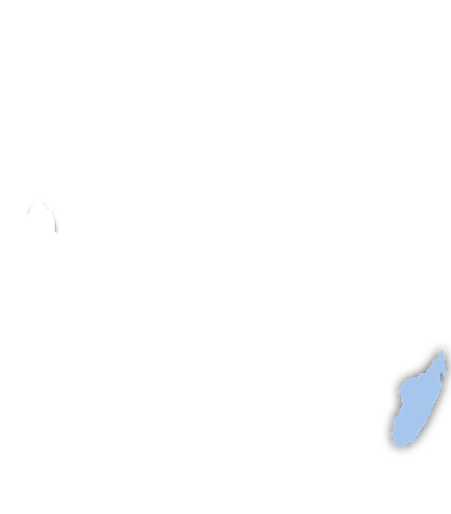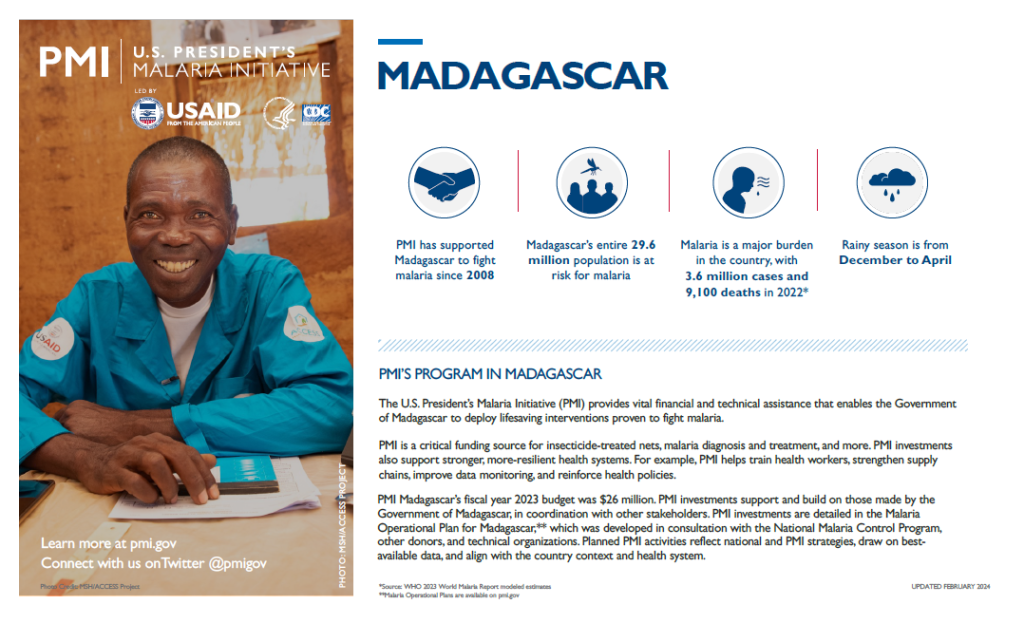MADAGASCAR

Madagascar faces major health challenges, with severe malaria among the top five causes of reported overall mortality. Malaria epidemiology varies across the country; however, the entire population is considered to be at risk for the disease. The 2018–2022 Malaria National Strategic Plan stratifies the country into malaria epidemiologic clusters based on the intensity of malaria transmission in order to better target interventions. From 2003–2013, there were clear impacts observed from malaria control program investments, including decreases in malaria cases and deaths. Data from a 2016 household survey showed a decrease in malaria in children less than five years of age from 10 percent in 2013 to 5.2 percent in 2016.
Country Fact Sheet
MADAGASCAR MALARIA OPERATIONAL PLANS (MOPs)
The Malaria Operational Plans below are detailed 1-year implementation plans for PMI partner countries. Each plan reviews the current status of malaria control and prevention policies and interventions, identifies challenges and unmet needs to achieve PMI goals, and provides a description of planned PMI-funded activities. Each Malaria Operational Plan has been endorsed by the U.S. Global Malaria Coordinator and reflects collaborative discussions with the national malaria control programs and partners in country. Changes to these plans are reflected in revised postings.
Page 1 of 1
Page 1 of 1
STORIES
Harnessing the Power of the Sun to Fight Malaria
Spraying mosquito-busting insecticide in homes is an important tool for fighting malaria, but extreme weather due to climate change can disrupt spraying campaigns. Harnessing solar power is one way to tackle these climate-induced challenges.
Combating Malaria While Safeguarding Madagascar’s Unique Environment
During a post campaign environmental assessment visit following the first [...]
Assessing Experiences and Perceptions on Care-seeking in Madagascar
Dr Sedera (DLP) explaining the assessment and the supervision [...]


